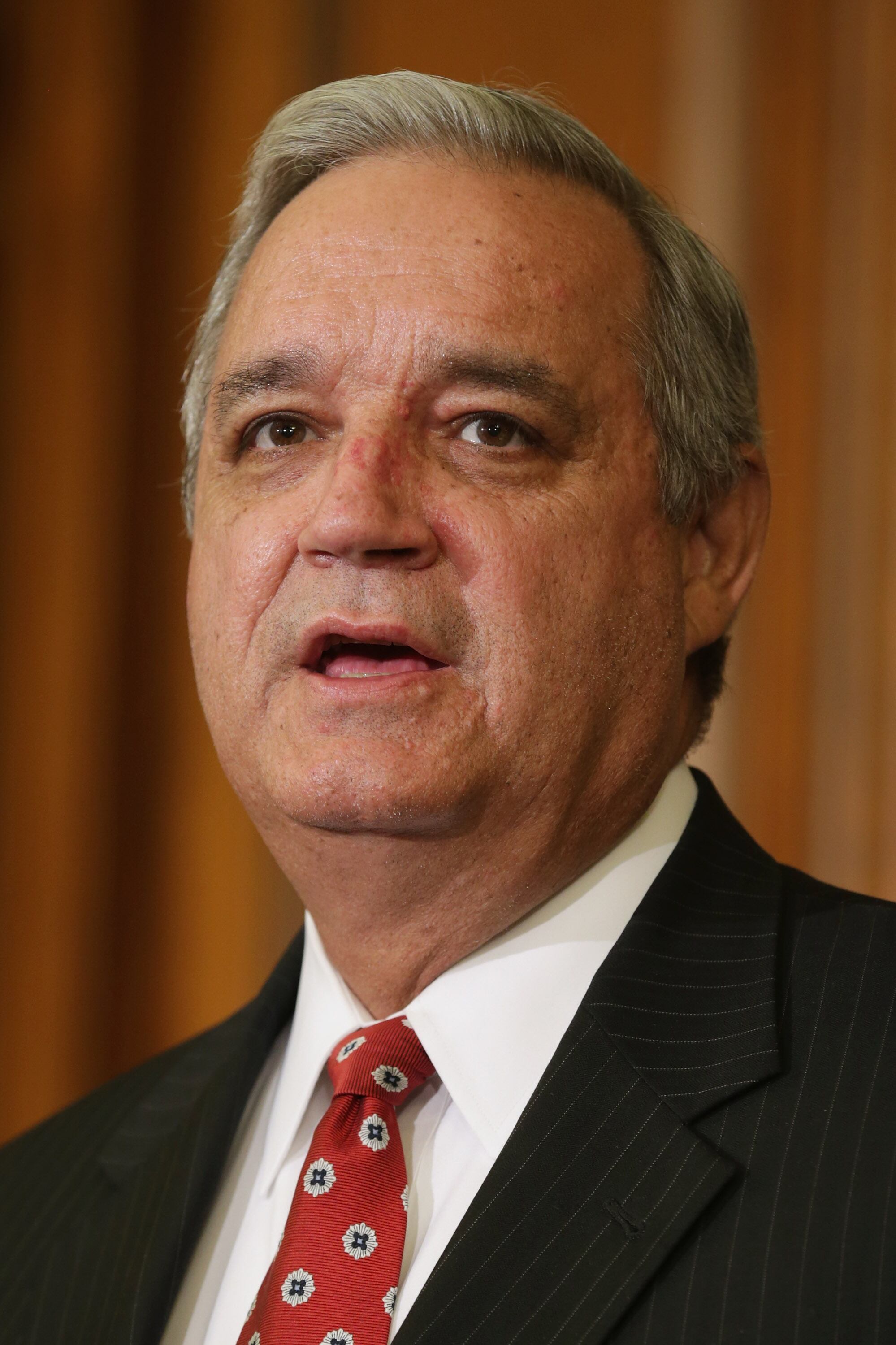The chairman of the House Veterans' Affairs Committee has accused the makers of hepatitis C drug sofosbuvir of opportunism and price-gouging for charging the U.S. government up to $68,000 for a treatment regimen that costs about $1,400 to manufacture.
In an op-ed published Wednesday on CNN.com, Florida Republican Rep. Jeff Miller condemned California-based Gilead Sciences Inc. for "picking and choosing" its pricing by customer or geographic area.
According to Miller, Gilead charges $900 in Egypt for the 12-week curative treatment but charges the Veterans Affairs Department between $40,000 and $68,000, depending on which of Gilead's treatments containing sofosbuvir — either Sovaldi or Harvoni — is used.
The irony, Miller adds, is that the man who led the scientific team that created sofosbuvir, Raymond Schinazi, is a senior research career scientist who has worked for the VA since the late 1980s.

House Veterans' Affairs Committee Chairman Jeff Miller, R-Fla., is criticizing a drug manufacturer for charging the government between $40,000 and $68,000 for a drug regimen for hepatitis C.
Photo Credit: Chip Somodevilla/Getty Images
"Gilead is making billions by charging American taxpayers exorbitant prices for medicine a VA doctor helped invent. And to add insult to injury, Gilead is practically giving the drug away in Egypt and some 90 other developing nations," Miller wrote.
It is believed that more than 200,000 veterans have hepatitis C, with nearly 175,000 veterans enrolled in the VA health system diagnosed with the disease, which is spread by shared needles or by contact with the bodily fluids of an infected person.
Those most at risk include people who received a blood transplant or organ transplant before 1992, when widespread screening became available in the U.S.
In fiscal 2014, the Veterans Health Administration treated more than 5,400 veterans with sofosbuvir at a cost of $370 million.
The anticipated cost of treating all affected veterans forced VA officials earlier this year to ask for additional funds in its budget; Congress appropriated $1.5 billion for the treatments in the fiscal 2016 consolidated spending bill.
Alarmed by the high prices charged by Gilead when the drug was introduced, Sen. Bernie Sanders, I-Vt., called a hearing in late 2014 to discuss the impact of the cost on the VA budget.
Gilead executives were called to testify at that hearing but declined, citing overseas business travel.
Sanders said he was outraged by the cost structure and accused the company of "price-gouging."
"With numbers like these, we're not talking about a company looking to make ends meet, or even fund their next great medical breakthrough," Sanders said. "We're looking at a company who is milking a cash cow for everything it's worth."
The House Veterans' Affairs Committee planned to discuss the development of sofosbuvir at a hearing on technology transfer scheduled for Feb. 3.
According to a source with knowledge of the hearing schedule, Schinazi was asked to testify but VA has said he is retiring effective Feb. 1.
Gilead spokeswoman Michele Rest defended the price and the company's billing structure in an email to Military Times last year.
She noted that Sovaldi does not "merely provide a long-term or indefinite treatment," but a cure for a life-threatening disease. Rest said the price "reflects the value of the medicine."
Miller argues that Gilead is exploiting the veteran community and the VA.
"Government shouldn't be in the business of telling private companies what to charge their customers," Miller wrote. "[But] Gilead's price discrimination against American veterans and the organization established to care for them is a slap in the face to the millions who depend on VA health care as well as the taxpayers who generously fund the department."
Patricia Kime covers military and veterans' health care and medicine for Military Times. She can be reached at pkime@militarytimes.com
Patricia Kime is a senior writer covering military and veterans health care, medicine and personnel issues.




